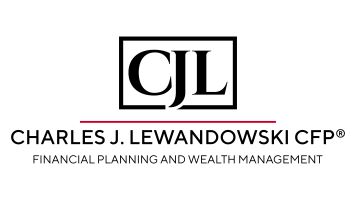Financial Planning News You Can Use – Episode 3 – Should You Have An Interest In I-Bonds?
Happy New Year Everyone! I hope that 2022 brings you and your family continued good health and success.
The Financial Press has recently increased discussion about a relatively unknown but considerably safe, high yielding, tax advantaged type of interest-bearing bond that you may want to consider for that cash earning next to nothing in your savings account.
My name is Chuck Lewandowski CERTIFIED FINANCIAL PLANNER™ professional and today I’m going to discuss “I-Bonds” and how they may benefit you.
I-Bonds or more specifically “Series I Savings Bonds” are issued by the United States Treasury Department and are currently earning 7.12% in annualized interest! They are backed by the full faith and credit of the US government. As such, you can’t find a much safer investment alternative that earns many times more interest than a bank savings account or CD. They can be purchased on the TreasuryDirect website or as an option for a portion of your tax refund.
Here’s How the I-Bond Interest Rate is Determined.
The rate that you earn is called the “Composite Rate” and it consists of two pieces. They are the “Fixed Rate” and the “Inflation Rate”. These rates are determined every six months by the Treasury Department. The Fixed Rate, which is currently 0%, is set at the time of bond purchase and stays constant for the life of the bond. The Inflation Rate, however, is adjusted very 6 months. On November 1, 2021, the Treasury Department determined that the Inflation Rate would be set at 7.12%. So, even though the Fixed Rate is 0%, the Composite Rate is 7.12% because of the high Inflation Rate component. If you purchased the bond on November 1st, you could earn 7.12% for the next six months. How does that compare to your bank CD?
And there’s more! The interest is free from state taxes!
So, What’s the Catch?
I-Bonds are issued with 30-year terms. However, you cannot redeem them of the first year and if you redeem them before holding them for 5 years, you will not be credited the last 3 months of interest. But, if you compare that to other interest-bearing options, the reduction is a small price to pay.
Also, each investor is limited to $10,000 purchase per calendar year. An investor can also direct up to $5,000 of a tax refund to an I-Bond which can increase your annual purchase to $15,000.
Who Can Benefit from Purchasing I-Bonds?
Since you cannot redeem the bonds for at least a year, you should contribute to your emergency fund before using your cash to purchase the bonds. If you are an investor looking for a conservative option for your cash, you may want to consider these bonds.
Here’s an Example How They May Work for You
My friends, Robert and Rosie, have twin sons who will be attending college in just over a year. They currently have the boys first year’s tuition split between a bank savings account earning 0.10% and an investment account. They are concerned that the stock market is at an all-time high, but they don’t want to earn such little interest in a bank account. What can they do?
Each investor is limited to a $10,000 annual purchase. Roger and Rosie can each purchase $10,000 of I bonds. They can also purchase $10,000 of bonds for each of their boys creating a family total purchase of $40,000. If they liquidate the bonds after one year, they will earn at least 3.56% for the full year on the $40,000 even if they earn 0% during the last six months of the 12-month period. How does that compare to a High Yield Savings Account or 1 year CD? And unlike the bank account, the earnings are state tax free.
I-Bonds may not be for everyone and there are some additional details that you should know about interest payments. But they can be a safe addition to your well diversified portfolio*. If you think that these bonds may fit in your portfolio, please give me a call and Let’s Make a Plan.
Advisory services offered through Capital Analysts or Lincoln Investment, Registered Investment Advisers. Securities offered through Lincoln Investment, Broker Dealer, Member FINRA/SIPC.www.lincolninvestment.com West Coast Financial Group, Inc. and the above firms are independent and non-affiliated. Tax advice is not offered through, nor supervised by Lincoln Investment or Capital Analysts.
Inflation is the rise in the prices of goods and services, as happens when spending increases relative to the supply of goods on the market. Moderate inflation is a common result of economic growth.
*Diversification and asset allocation do not guarantee a profit or protect against a loss.
01/22
